
IgorDutina/iStock/Getty Images
Nitrates are ingredients added to many foods to achieve flavor, color and stability. In addition, they help protect against bacterial growth and rancidity, enhance the flavor of foods and add shelf life to products. According to Foodreference.com, caution must be taken when adding nitrates to food or consuming them, since an excess can be harmful.
Cured Meats And Bacon

Brent Hofacker/iStock/Getty Images
Nitrates are added to cured meats and bacon products. Medical News Today states that consumption of these nitrate-containing foods may be harmful to your health. More than 90 percent of nitrates have been shown to be carcinogenic in many bodily organs. A 2006 report in Medical News Today states that nitrates can turn into nitrosamines when in acidic environments, such as your stomach; nitrosamines are cancer-causing agents. Eliminate or limit your consumption of cured meats and bacon to improve your diet.
Fruits And Vegetables
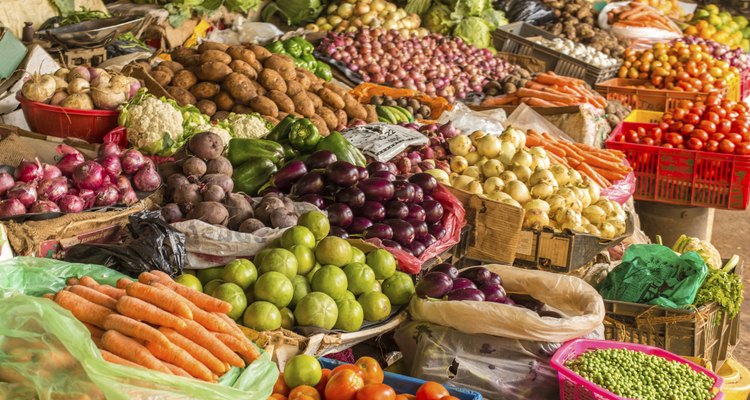
Dereje Belachew/iStock/Getty Images
According to a 2009 study published in the "American Journal of Clinical Nutrition," consuming plant food sources of nitrates may play a role in improving your health. This study stated that approximately 80 percent of nitrates in the diet are in vegetables and fruits. This study found that intake of nitrates from fruits and vegetables may play a role in lowering your blood pressure, but concluded that more research into the potential benefits of nitrate consumption is necessary.
Drinking Water

Juri Samsonov/iStock/Getty Images
According to the World Health Organization, or WHO, nitrates may be present in inorganic fertilizers, contributing to the presence of these substances in drinking water sources. Nitrate concentration of both surface and groundwater is typically low, but can reach high levels due to leaching from soil or contamination from human or animal wastes. The WHO says a guideline intake value for nitrate is 50 milligrams per litre; any amount higher than this may pose harm, particularly to infants. The health concern related to nitrate intake by infants is called methaemoglobinaemia, a condition in which the blood cells are not able to transport oxygen efficiently through the body. This can lead to insufficient supply of both oxygen and nutrients to vital organs and the brain.
Related Articles

Ingredients in Redken Shampoo
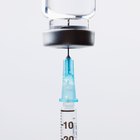
Dimethicone Hazards

L-Lysine for Hair Growth

Skin Benefits of Eating Coconut Oil

What Foods Provide Calcium D-Glucarate?

Vegetarian Sources of Astaxanthin

Side Effects of Monosodium Glutamate

How to Get Rid of Skunk Smell With ...

Copper Peptides Side Effects

Palmolive Shampoo Ingredients

Health Benefits of Organic Foods Vs. ...

Pycnogenol and Acne

How Are Perfumes Tested on Animals?

Aggressive Behavior in Adults
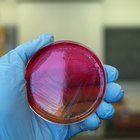
Uses of Saltpeter in Food

Pros & Cons of Parabens
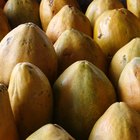
List of Foods That Are Commonly ...
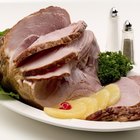
Does Boiled Ham Have Nitrites?

Negative Side Effects of Paba

How to Prepare Toothpaste From Baking ...
References
- Food Reference: Nitrates And Nitrites
- Medical News Today: Researchers Find Possible Environmental Causes For Alzheimer's, Diabetes
- American Journal of Clinical Nutrition: Food Sources of Nitrates and Nitrites: The Physiologic Context for Potential Health Benefits
- Food Additives and Contaminants: Monitoring Programme on Nitrates in Vegetables and Vegetable-Based Baby Foods Marketed in the Region of Valencia, Spain: Levels and Estimated Daily Intake
- World Health Organization: A summary statement
- Medical News Today: Fat In Stomach Can Turn Vitamin C Into A Cancer Trigger
Writer Bio
Jill Andrews began writing professionally for various online publications since 2009. Andrews holds a Bachelor of Science in biochemistry/nutrition from Memorial University in St.John's, Newfoundland. She also holds a Bachelor of Science in occupational therapy from Dalhousie University in Halifax, Nova Scotia.
Photo Credits
IgorDutina/iStock/Getty Images